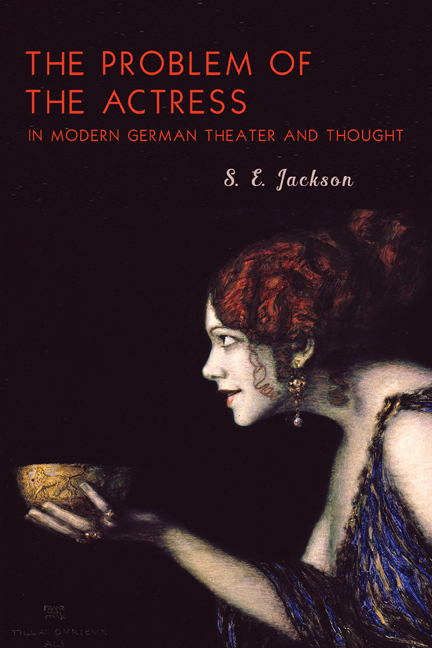5 - Dancing in the Abyss
Published online by Cambridge University Press: 09 February 2021
Summary
HUGO VON HOFMANNSTHAL'S one-act drama Elektra premiered on October 30, 1903 at the Kleines Theater in Berlin. Directed by Max Reinhardt and starring Gertrud Eysoldt, the modernist production sent shock waves through the audience that reverberated across the country as reviews of the performance circulated in the days that followed. Writing for the Hamburger Fremdenblatt, the critic Eduard Engel recounts the extraordinary experience: “As the curtain slowly fell after the murder's instigator, Elektra, performed her gruesome dance of triumph, the hushed crowd was rapt and awestruck with such solemn emotion as I, in my considerable experience as a theater critic, have never yet seen and experienced.” Engel was not the only critic to report on the general astonishment of viewers. Numerous reviews describe how the audience sat in silence for several minutes after the curtain fell before bursting into thunderous applause, calling the author and the lead actress out to the stage repeatedly. The furious pace and macabre poetic dialogue of Hofmannsthal's dramatic text, the masterful application of lighting and set design under Reinhardt's direction, and above all else Eysoldt's stunning physical performance as Elektra captivated and astounded viewers.
Hofmannsthal wrote Elektra specifically for Eysoldt and Reinhardt. Their fateful meeting at Hermann Bahr's home in Austria confirmed their aesthetic kinship and the three immediately discussed future collaborations. In his diary, Hofmannsthal writes: “At this breakfast I promised Reinhardt that I would write him an ‘Elektra’ for his theater and for Eysoldt” (DSE, 115–16). Hofmannsthal had long been interested in writing a modern adaptation of Sophocles's Electra, but his radical conception of the work did not crystalize until he saw Eysoldt perform. The actress was thus central to the drama from its inception and her remarkable performance in the role would extend her influence into the theatrical production and its reception.
Critics had intense and conflicting responses to the drama and its production. Hofmannsthal, Reinhardt and Eysoldt provoked even stronger reactions by presenting a radically modern adaptation of a beloved Greek tragedy. The critic for the Berliner Börsen-Kurier announced: “Classicism in contact with decadence and Ms. Eysoldt as the goddess of revenge, as Elektra!” The critic for the Tilsiter Zeitung was not excited but rather angry, insisting: “The entire Berlin press is outraged about the misusage of Sophocles's drama by the Viennese neurasthenic poet.”
- Type
- Chapter
- Information
- The Problem of the Actress in Modern German Theater and Thought , pp. 153 - 187Publisher: Boydell & BrewerPrint publication year: 2021

